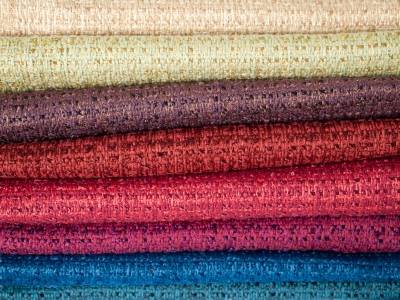
The Organic Trade Association (OTA) applauds the U.S. Department of Agriculture National Organic Program (USDA's NOP) for its May 20 Policy Memorandum addressing the labeling of textile products containing organic ingredients (such as organic cotton, organic wool, and organic linen). The new policy supersedes the July 2008 NOP fact sheet entitled “ Labeling of Textiles under National Organic Program (NOP) Regulations.”
This latest memo, “Labeling of Textiles that Contain Organic Ingredients,” confirms that processed textile products such as apparel, mattresses, or socks labeled as “organic” must be third-party certified, and all fibers identified as “organic” contained in the textile product must be certified organic to the NOP regulations.
The NOP Policy Memo also clarifies that while the NOP regulations do not include specific processing or manufacturing standards for textile products, a product can be labeled as “organic” and make reference to NOP certification if it is produced in full compliance with both the NOP production standards (crops and livestock for raw materials) and the NOP handling standards (processing for the finished product). This includes all processing methods allowed under 7 CFR 205.270 and all ingredients and inputs allowed under 205.605 and 205.606 of the National List. However, as most of these methods and ingredients are not applicable to textile processing, NOP labeling is likely unachievable for most garments and textile products that use a variety of dyestuffs and auxiliary agents.
As a practical alternative, the policy memo explicitly confirms that textile products that are produced in accordance with the the Global Organic Textile Standard (GOTS) may be sold as “organic” in the U.S. though they may not refer to NOP certification or carry the USDA organic seal. GOTS is the stringent voluntary global standard for the entire post-harvest processing (including spinning, knitting, weaving, dyeing and manufacturing) of apparel and home textiles that are made with organic fiber.
Additional correspondence with the NOP clarified that “made with organic (specified ingredient)” is a codified labeling category under the NOP as well as a labeling category under GOTS. Accordingly, textile manufactures choosing to make a fiber content claim in accordance with the Federal Trade Commission (FTC) labeling requirements should use terminology such as “contains 80% organic cotton.” The NOP labeling requirements are in addition to those required by the FTC.
“We are excited USDA is recognizing the rapidly growing organic fiber sector in general and GOTS in particular, thus enabling organic textile manufacturers to make production and processing claims just as manufacturers of organic food and beverages can,” said Christine Bushway, OTA's Executive Director.
GOTS Coordinator Herbert Ladwig agreed. “We welcome and support USDA's new policy which officially and explicitly confirms that the use of the GOTS label ‘organic' for textiles is accepted. Experts from around the world have worked for years to make GOTS a stringent and comprehensive organic textile standard. Government recognition underlines its increasing leading role worldwide.”
The policy memo was added to the online NOP Handbook that provides guidance and instructions to assist those who own, manage, or certify organic operations in complying with the NOP regulations.
GOTS includes both environmental and social provisions for post-farm to retail shelf management. Key provisions include prohibition on use of genetically modified organisms (GMOs), highly hazardous chemicals such as azo dyes and formaldehyde, and child labor, while requiring living wages and strict waste water treatment practices. Because all fiber certified to GOTS must already be certified organic, GOTS certification means consumers are purchasing items certified organic from field to finished product.
According to the GOTS International Working Group (GOTS IWG) public database of facilities certified to GOTS, approximately 1,500 companies with a total of 2,754 facilities in 54 countries around the world were certified to the organic apparel and textile standard by the end of 2010. The top twenty countries based on the number of GOTS-certified facilities are (in order of ranking): India, Turkey, China, Pakistan, South Korea, Japan, Germany, Italy, United Kingdom, Bangladesh, France, Hong Kong, Mauritius, Peru, USA, Netherlands, Sri Lanka, Portugal, Greece, and Belgium. Countries in which facilities were certified to GOTS for the first time in 2010 included Finland, the Lao People's Democratic Republic, Latvia, Macedonia, Sweden, and Uganda.
The database includes almost 400 dyeing facilities, more than 200 spinning, knitting, and weaving units, and approximately 140 printing and manufacturing facilities. While more than 700 companies are listed with an export business, currently about 50 import operations hold GOTS certificates as well. Fourteen independent certification organizations around the world are qualified to certify operations to the standard.
The GOTS IWG is made up of the Organic Trade Association (U.S.), the Japan Organic Cotton Association, International Association Natural Textile Industry (Germany), and the Soil Association (UK [FREE Stock Trend Analysis]).
Article courtesy of benzinga.com

